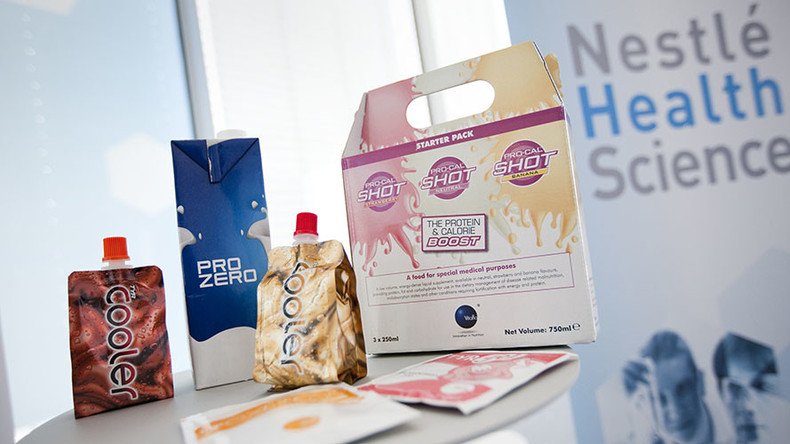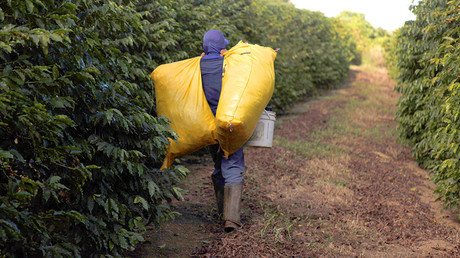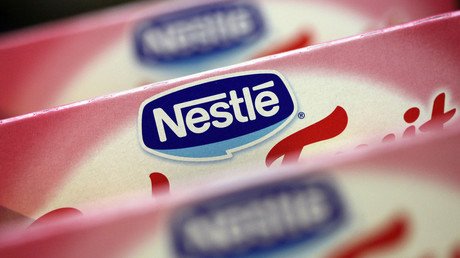Nestle to develop food to treat diseases

Scientists from the Swiss food company Nestle are developing medicinal foods such as prescription-based powders and drinks intended to treat diseases, the Wall Street Journal reports.
The company is tapping into an estimated $15 billion medical foods market as traditional packaged foods face tougher times.
Studies are underway at Nestle’s research institute in Lausanne, Switzerland. Machines are analyzing human DNA to develop personalized programs for conditions like epilepsy and intestinal disorders.
The scientists will further develop medicinal foods containing natural compounds extracted from foodstuffs like tomatoes, coffee and grapes.
Nestle sees big potential in this new market because of the aging population.The World Health Organization forecasts the proportion of people over 60 (a key group for medical foods) to rise to 22 percent globally by 2050 from 12 percent at present.
“For a long time, nutrition has been seen as a sort of pseudoscience,” Ed Baetge, head of Nestle’s Institute of Health Science, or NIHS, told the media. “For many conditions like age-related dementia, for example, there is a major clinical need for new approaches, where food can make a big difference.”
Skeptics say medicinal foods may have a placebo effect with consumers “thinking” they benefited when they hadn’t.
“While it’s clear that what we eat and drink has a substantial effect on our health, there is currently insufficient evidence documenting that these foods provide a medically relevant effect,” scientist Ben Locwin who works with the American Association of Pharmaceutical Scientists told the WSJ.
There are also concerns about the time needed to bring such products to market and the huge research costs.
Nestle says it will conduct studies on safety, benefits and effectiveness of its medical foods before introducing them to market.
“It is very important for us to have clinical evidence,” said Nestle’s Health Science spokeswoman Marie-Francoise Rutimeyer.
Nestle’s health business also includes nutritional supplements and foods for people after surgery grew faster than the rest of the company’s operations in 2015. According to analysts, sales in the segment reached about $2.1 billion (2 billion Swiss francs).
For the past three years Nestle has missed its whole sales growth target of five to six percent, and is expected to report sluggish sales growth for the start of 2016.













